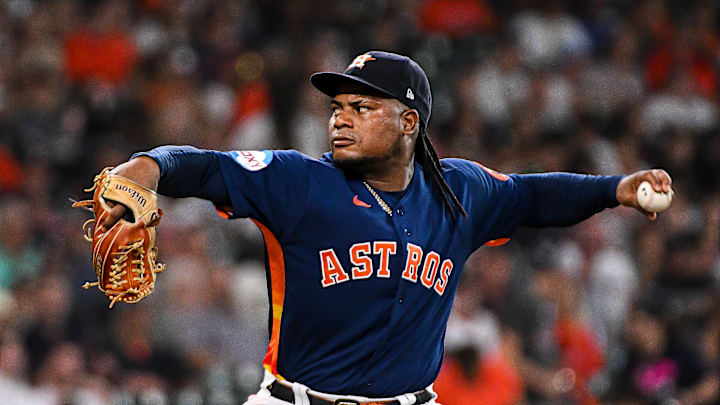The Houston Astros already had a lot to consider before the division rival Angels pulled off a trade last night to acquire Lucas Giolito and Reynaldo Lopez from the White Sox. Houston needs to add at least one more starting pitcher at the deadline with another power bat and bullpen depth also being on the shopping list.
Now that the Angels have finally committed to keeping Shohei Ohtani and going for it in 2023, the Astros' trade deadline plans have gotten a bit more complicated. Does the move change the Astros' roster needs over the next few days? Most certainly not, but what it could do is change how Houston has to go about executing their plans.
Here are the ways the Giolito trade could complicate the Astros' trade deadline plans
To be clear, it is important to not overreact to the moves that other teams make, even if it is other teams in the division. Forcing moves to try to "keep up" with other teams is one way that bad rushed deals happen. Houston needs to keep a clear head and stick to their player evaluations on both sides of any deal they are considering.
However, it would be naive to suggest that the Giolito trade doesn't change the trade market or impact Houston at all. That move was the first big domino to fall this trade season and Dana Brown and the Astros' are going to have to navigate the fallout well to come out ahead in the end.
Let's take a look at how the Giolito trade could complicate the Astros' trade deadline plans
